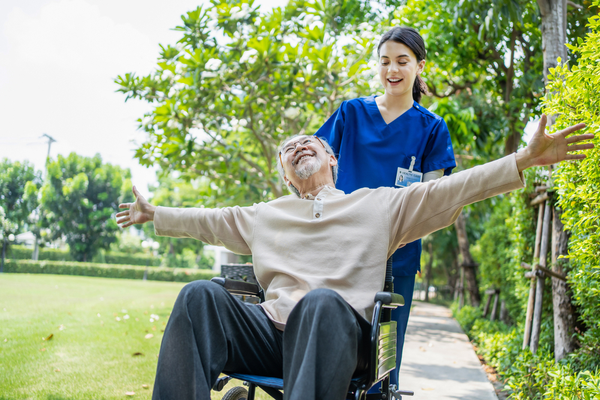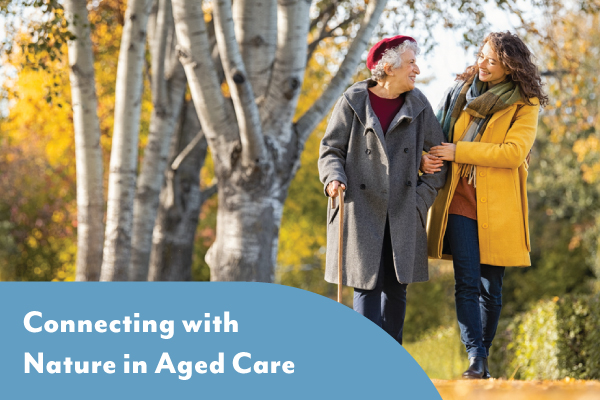When we read interviews with the oldest living people in the world, everyone always wants to ask ‘What is your secret?’. However, research suggests that there may not be just one silver bullet to feel good and live a long life, rather a combination of factors. Some of these factors we can’t control, such as genetics — a key player in determining the ageing process.
Ageing well can mean a lot of different things. Keeping the wrinkles at bay and looking youthful might help you feel good as you get older, but ageing well is about so much more than that. It’s a combination of remaining able-bodied and physically strong, keeping a sharp mind, staying socially active, being independent and generally getting the most out of life for as long as possible.

On the other hand, there are many factors we do have a say in. When considering these areas that we can control, general tips for ageing well include:
Healthy consumption:
Eating a healthy diet full of whole foods rather than heavily processed foods is well-known to help us stay healthy at any age. Combine this with plenty of water and limiting alcohol and you’re on your way to maintaining good health.
Sun protection:
Not only will staying safe in the sun keep your skin looking and feeling younger, but using sunscreen, seeking shade and wearing protective clothing reduces the risk of skin cancers, some of which can be deadly.
Staying active:
Moving your body is a must at any age. Walking for as little as 30 minutes a day can improve your heart health while reducing the risk of osteoporosis, diabetes and other chronic conditions.
Engage in hobbies:
Engaging in new and old hobbies can improve cognitive function and mental health, increase feelings of wellbeing and improve physical health. Whether it’s photography, writing, playing instrument — a hobby can make you happier and healthier as you age.
Stay social:
Social interactions commonly decrease as we get older, but social participation can play a key role in supporting healthy and enjoyable ageing. Studies have even suggested that social activity can slow the onset of dementia! Make an effort to create new relationships and maintain older relationships at every stage of life to stay mentally active, improve mental health and wellbeing and enjoy physical health benefits too.
Get plenty of sleep:
Sleep is crucial for the body to rest and repair. A good night’s sleep is linked to memory formation, immune system function and cell repair, so aiming for 7 to 8 hours of quality sleep each night is essential.
Practice mindfulness:
Reducing stress in life can have a host of positive effects now and as we age. Mindfulness is a proven tactic to live a less stressful life and maintain a high level of emotional wellbeing, even in the face of challenges. Incorporating mindfulness practice into your life at any age will certainly help you to age well.
Ageing well can start now
It’s important to note that ageing doesn’t only refer to getting ‘old’ or reaching ‘old age’. Ageing is something that is occurring to us all the time. This means that putting in the effort for ageing well can start at any time.
While the general advice as explored above is useful for a positive experience of ageing, there are ways in which you can incorporate multiple areas at once. One such way is undertaking education. After all, if we are going to explore ways to keep the mind sharp and stay active and involved in life, education certainly ticks the boxes. It doesn’t matter how old you are and whether you’re new to studying or all set to upskill —much like the ageing process, education is something that can be lifelong.
Better yet, furthering education specifically in the aged care sector, can bring a range of benefits to your life that will help you to live in a way that is fulfilling and happy:
Goals and ambitions to strive for:
Lifelong learning provides new goals that keep us focused and moving forward. Much like progressing in our hobbies can slow down cognitive ageing, studying activates the brain in all the right ways too.
Positive benefits of caregiving:
Caring for others bring benefits to both the carer and the recipient. As a carer you feel increased happiness through providing support to those who need it most, while building a strong sense of empathy and compassion which can have a run-on effect to enhance all your relationships.
Belong to a community:
Studying and working connects you with a professional and social community of like-minded individuals. With shared goals and passions, you can feel a sense of belonging that contributes to improved wellbeing.
Ageing well through caring for others
Ageing well means getting older the happiest and healthiest way possible. Education can contribute to optimising the emotional, cognitive and physical aspects of ageing, so you can feel fulfilled and excited about life at any age. Reaching our full potential and providing compassionate care for others around us is an inspiring and wise approach to making the most of the time we have.
If you’re starting out on your journey toward a meaningful career path, at any age, we can help you shape your future. For those already working in the aged care sector and helping others, take care of yourself too and create space to continue to learn along the way.
Get in touch with Selmar for all the support you need for your aged care training and upskilling.



